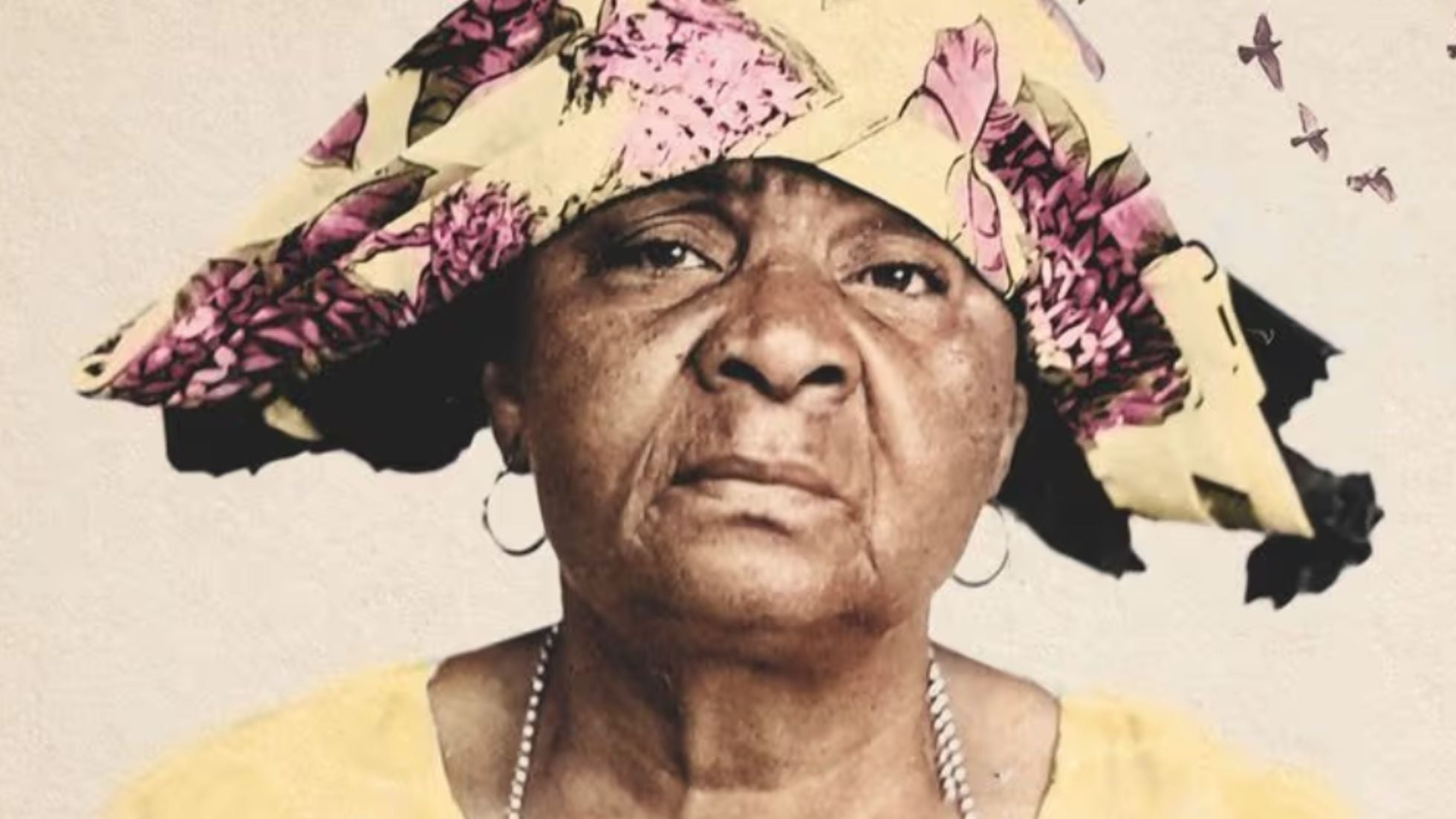When my brother messaged me that the film Mama Sranan was premiering at the Margaret Mead Film Festival, I immediately added it to my calendar. A Surinamese film screening in New York is a rare and significant event, so I was determined to show my support.

Tessa Lewsha on the right, is being interviewed at the Margaret Mead Film Festival.
However, I have to admit that I was a bit skeptical. Having grown up in Suriname, I feared that it might be yet another stereotypical film with flowery depictions of colonial times that I was all too familiar with.
Well, I was delighted to be proven wrong. Tessa Leuwsha, author and filmmaker, not only shattered my expectations but created a film that touched me in ways I hadn’t anticipated.
About the film (spoilers alert)
Mama Sranan centers on Fansi, a grandmother reflecting on her life during a transformative era in Suriname’s history. She grew up after the abolition of slavery, lived through World War II, and witnessed the period before Suriname’s independence.
As the child of a white woman and a Black man, Fansi’s existence mirrors the complexities of colonial Suriname. Unlike in South Africa, where such a child might have been called "a crime" as Trevor Noah describes, in Suriname there was no label—just abandonment. Fansi was left to be raised by a woman she called “aunt.”
Longing for her mother, we see key points of history of Suriname through the eyes of an abandoned woman who manages to raise kids washing clothes and cleaning houses.
Jones, Guyanese about Mother Suriname
Imagery That Transports You
Through seamlessly edited archival footage, we are transported back to a time when slavery had just ended, and Suriname was finding its footing. From vintage cars and boats to the flora and fauna, the buzzing streets of Paramaribo come alive in an historic masterpiece.
Denise Janah’s narration, with her rich and soulful voice, adds another layer of depth. Her tone perfectly matches the film's poignant yet hopeful storytelling, making every moment feel intimate and profound.
Key points in history
While watching gun shots fired and a boat departing, Fansi tells us how Anton the Kom, author of ‘We Slaves from Suriname’ and a key-figure in anti-colonialism, is arrested and deported. The black-and-white archival footage left me wondering if they had ever been publicly aired before.
A booming Paramaribo is shown when the country became the most important producer of bauxite during world-war II. Very few people are aware that Suriname supplied approximately 75% of the bauxite for the U.S. to build aircraft.
Mama Sranan shows a few of the 3,000 American troops that were stationed in the country having a good time with the locals while protecting the resources.
The visit of Princess Juliana during this time, a spectacle of women laying down their pangis, traditional garments, for her majesty to walk on, paints a picture of the 40’s in the colonized countries by European nations.
Bashiri Russel from North Carolina about Mama Sranan
Even though Fansi wasn’t politically engaged, she was very much aware that Suriname men were also recruited and left to fight the war. What happened to the men, she asked. They are not coming back. It reflects the silent losses endured by the community. A question that still lingers in my mind.
Life back then as a Black woman
Longing to belong, Fansi raises her children, vowing to never leave them, as her mother left her. A White face in a crowd often makes her wonder, is that my mother?
Through her story, through the history, I see the story of our great grandmothers and our ancestors.
In an era when women had few rights, men often evaded responsibility for their children, and women raised families against all odds, Fansi’s strength is emblematic of the indomitable Black woman. She never complains; she simply perseveres. It is the story of the strong Black woman.
Relatable Across Cultures
Yet, this story resonates with cultures around the world. From women in Asia to Black communities in America who have never even heard of Suriname.
Emotional after the screening, Bashiri Russell from North Carolina, shared how much the story reminded him of his own family’s history. Even the architecture and housing felt familiar to him.
What sets this film apart is its lens: the strong Black woman who, despite centuries of being undervalued, built the foundation upon which we stand today. Mama Sranan is a reminder of their unyielding strength and the sacrifices that shaped generations.
Trailer
Final Thoughts
Mama Sranan, Mother Suriname is not just a film; it’s an emotional journey and a historical revelation. It captures the untold stories of a generation and a country, weaving personal and political narratives into a rich, immersive experience.
Summary
Mama Sranan is a poignant exploration of Surinamese history, told through the eyes of a remarkable woman. Fansi, the film's central figure, embodies the resilience and strength of generations of Surinamese women. By delving into her personal journey, the film offers a fresh perspective on the country's past, challenging traditional narratives and highlighting the experiences of ordinary people.
As a child born to a White woman and a Black man, Fansi's identity was complex and often misunderstood. She was a product of a society grappling with the legacy of colonialism and slavery. Through her eyes, we witness the beauty and the brutality of Suriname's history.
The film's powerful use of archival footage transports us back in time, allowing us to experience the vibrant culture and the harsh realities of life in colonial Suriname. We see the bustling streets of Paramaribo, the lush rainforests, and the impact of World War II on the country.
Denise Janah's narration is both soothing and evocative, guiding us through the film's emotional landscape. Her voice, combined with the stunning visuals, creates a truly immersive experience.
Mama Sranan is more than just a historical documentary; it's a deeply personal story that resonates with audiences worldwide. Fansi's unwavering spirit and her determination to overcome adversity inspire us to appreciate the sacrifices made by generations past.
By the end of the film, I was left with a profound sense of gratitude for the lives of those who came before us. Mama Sranan is a must-watch for anyone interested in history, culture, and the human spirit.





